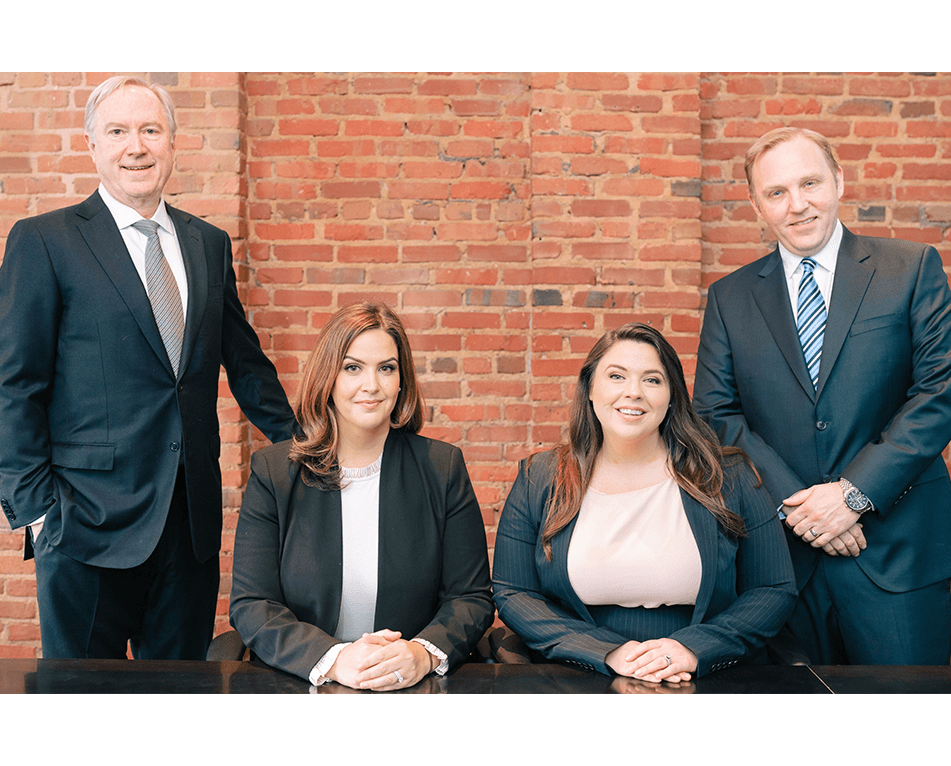
Understanding Non-Compete Agreements in Atlanta, Georgia
Georgia law—specifically, the Georgia Restrictive Covenants Act, O.C.G.A. § 13-8-50 et seq.—generally respects restrictive covenants as long as they are reasonable. Non-competes must be reasonable in terms of the geographic area or distance in which an employee is not allowed to compete, as well as the scope of restricted activities and the length of time the non-complete applies. For example, a non-compete that prevents an employee from competing with their former employer anywhere in the world will likely not be enforceable. But if a non-compete only bars the former employees from engaging in specific competing activities within a limited area and for a limited period of time, Georgia courts can presume the non-compete reasonable. In such a case, the burden shifts to the former employee to demonstrate that it is nevertheless an unreasonable restraint.
Georgia law permits, but does not require, courts to modify a restrictive covenant that is otherwise void and unenforceable, so long as the modification does not render the restrictive covenant more restrictive. However, Georgia courts apply the “blue pencil” method, which means that they may, but need not, strike out unreasonable terms in an overbroad non-compete. But they will rewrite restrictive covenants to include reasonable limitations that do not exist. Whether you are a business or an employee, you should consult with an attorney if you believe a non-compete in your contract may be overly broad or otherwise unenforceable.
Legal Insights on Non-Solicit Agreements in Atlanta
Non-solicitation agreements restrict one party from soliciting the other party’s customers, prospective customers, vendors, or suppliers. Some non-solicits prevent a former employee or business partner from soliciting the other party’s employees to leave and work for them.
However, just as with covenants not to compete, covenants not to solicit must be reasonable. For a former employee, any non-solicit agreement lasting less than two years is presumed to be reasonable. For other individuals and companies, the presumption of reasonableness may extend to three years or five years, depending on the kind of business relationship at issue. Georgia law does permit non-solicit agreements against former employees, and they may even be valid without an express geographic limitation. However, non-solicits must nevertheless be reasonable and courts will narrowly interpret these provisions to apply only to customers or prospective customers with whom the employee had “material contact” or products or services that are competitive with the former employer’s business.
Protecting Trade Secrets and Confidentiality in Atlanta
Trade secrets are business information which is not commonly known by or available to the public, is valuable because it is not commonly known or easily learned, and which a person or a business attempts to keep secret as a result. Trade secrets include the kind of business information that a company would usually keep secret—like a list of potential customers or the secret formula for Coca-Cola®, but may also be any kind of technical or non-technical data, patterns, compilations, programs, devices, methods, techniques, processes, or plan. The Georgia Trade Secrets Act of 1990, O.C.G.A. 10-1-760 et seq., makes misappropriation of trade secrets unlawful and authorizes claims for injunctive relief and damages, as well as attorney’s fees and costs of litigation.
Confidential information includes trade secrets, but also anything a contract defines as confidential and therefore protected. Contracts with restrictive covenants often define confidential information specifically and prohibits parties who obtain confidential information from one person or company during a business relationship from using that confidential information in later employment relationship or business venture. In Georgia, restrictions on the disclosure or use of confidential information may last indefinitely, as long as the information remains confidential.
Top Atlanta Attorneys for Non-Compete and Trade Secret Disputes
Disputes involving restrictive covenants may be complex, requiring evidence relating to specific types of businesses, products and services available in the market, and other specialized data. Effective advice and representation in this area requires not only knowledge of the law but also the ability and willingness to drill down on the details of business arrangements, investments, and the needs of parties to these kinds of contracts. The attorneys at Beal, Sutherland, Berlin & Brown have the expertise in both employment and business law to advise our clients effectively on restrictive covenants and litigate these disputes. If you need advice or representation relating to restrictive covenants, contact us today for a free consultation.
Seek Legal Guidance from Atlanta's Trusted Employment Lawyers – Call Now(404) 476-5305or Request Your Consultation Online.
Non-Compete Provisions in Georgia
Georgia law—specifically, the Georgia Restrictive Covenants Act, O.C.G.A. § 13-8-50 et seq.—generally respects restrictive covenants as long as they are reasonable. Non-competes must be reasonable in terms of the geographic area or distance in which an employee is not allowed to compete, as well as the scope of restricted activities and the length of time the non-complete applies. For example, a non-compete that prevents an employee from competing with their former employer anywhere in the world will likely not be enforceable. But if a non-compete only bars the former employees from engaging in specific competing activities within a limited area and for a limited period of time, Georgia courts can presume the non-compete reasonable. In such a case, the burden shifts to the former employee to demonstrate that it is nevertheless an unreasonable restraint.
Georgia law permits, but does not require, courts to modify a restrictive covenant that is otherwise void and unenforceable, so long as the modification does not render the restrictive covenant more restrictive. However, Georgia courts apply the “blue pencil” method, which means that they may, but need not, strike out unreasonable terms in an overbroad non-compete. But they will rewrite restrictive covenants to include reasonable limitations that do not exist. Whether you are a business or an employee, you should consult with an attorney if you believe a non-compete in your contract may be overly broad or otherwise unenforceable.
Non-Solicit Provisions
Non-solicitation agreements restrict one party from soliciting the other party’s customers, prospective customers, vendors, or suppliers. Some non-solicits prevent a former employee or business partner from soliciting the other party’s employees to leave and work for them.
However, just as with covenants not to compete, covenants not to solicit must be reasonable. For a former employee, any non-solicit agreement lasting less than two years is presumed to be reasonable. For other individuals and companies, the presumption of reasonableness may extend to three years or five years, depending on the kind of business relationship at issue. Georgia law does permit non-solicit agreements against former employees, and they may even be valid without an express geographic limitation. However, non-solicits must nevertheless be reasonable and courts will narrowly interpret these provisions to apply only to customers or prospective customers with whom the employee had “material contact” or products or services that are competitive with the former employer’s business.
Trade Secrets and Confidential Information in Georgia
Trade secrets are business information which is not commonly known by or available to the public, is valuable because it is not commonly known or easily learned, and which a person or a business attempts to keep secret as a result. Trade secrets include the kind of business information that a company would usually keep secret—like a list of potential customers or the secret formula for Coca-Cola®, but may also be any kind of technical or non-technical data, patterns, compilations, programs, devices, methods, techniques, processes, or plan. The Georgia Trade Secrets Act of 1990, O.C.G.A. 10-1-760 et seq., makes misappropriation of trade secrets unlawful and authorizes claims for injunctive relief and damages, as well as attorney’s fees and costs of litigation.
Confidential information includes trade secrets, but also anything a contract defines as confidential and therefore protected. Contracts with restrictive covenants often define confidential information specifically and prohibits parties who obtain confidential information from one person or company during a business relationship from using that confidential information in later employment relationship or business venture. In Georgia, restrictions on the disclosure or use of confidential information may last indefinitely, as long as the information remains confidential.
Atlanta Non-Compete and Trade Secrets Attorneys
Disputes involving restrictive covenants may be complex, requiring evidence relating to specific types of businesses, products and services available in the market, and other specialized data. Effective advice and representation in this area requires not only knowledge of the law but also the ability and willingness to drill down on the details of business arrangements, investments, and the needs of parties to these kinds of contracts. The attorneys at Beal, Sutherland, Berlin & Brown have the expertise in both employment and business law to advise our clients effectively on restrictive covenants and litigate these disputes. If you need advice or representation relating to restrictive covenants, contact us today for a free consultation.
Put a dynamic Atlanta employment Attorney on your side by calling our office at (404) 476-5305or filling out our online contact form today.
At our law firm, our trusted attorneys practice with excellence, ensuring clients receive the best legal representation. With dedication and skill, we navigate complex legal challenges, delivering successful outcomes and upholding the highest standards of professional integrity.



5 Star reviews
-
“- Former Client
”Great staff!!! Made sure I was well taken care of and compensated for my claims.
-
“I worked with Attorney Rachel Berlin Benjamin and it was a GREAT experience! She was professional, kind, informed and advocated for me from day one.”- Audrey H.
-
“For a very long time I faced a horrible situation at work. Someone with a lot of power hurt me and others and I did not know what to do. I didn't say anything for a long time and ended up leaving a job I worked over 15 years to get. From the moment I spoke”- Cindy S.
-
“Milinda and her team were so caring with my situation. Dealing with Employer-Employee situations cannot be easy. I know mine was not... So not only their legal expertise was amazing but their human side was just as amazing. I cannot thank them enough for h”- Marianne L.
-
“Rachel Berlin Benjamin is an excellent attorney.”- Lauren F.
-
I would 100 percent recommend Rachel Berlin Benjamin!! I am very pleased with her work ethic and how she handled my case. She was very nice, professional, helpful and very intelligent. I cant thank her enough, she’s definitely amazing.- Kyashia M.
-
“Rachel and her team were highly professional, knowledgeable and very honest throughout the process. I had no idea where to start and Rachel was able to walk me through the necessary steps. I deal with attorneys on a daily basis but had never hired one myse”- Jessica H.
-
“I highly recommend Beal, Sutherland, Berlin & Brown. Brian Sutherland handled my case and walked me through the whole process from what to expect to what kind of timeframe it might take. Always kept me updated on the status of my case and on any settle”- Raymond M.


















.2301230958131.jpg)
.2301230958491.jpg)
.2301230954223.jpg)


.2301231005031.jpg)




